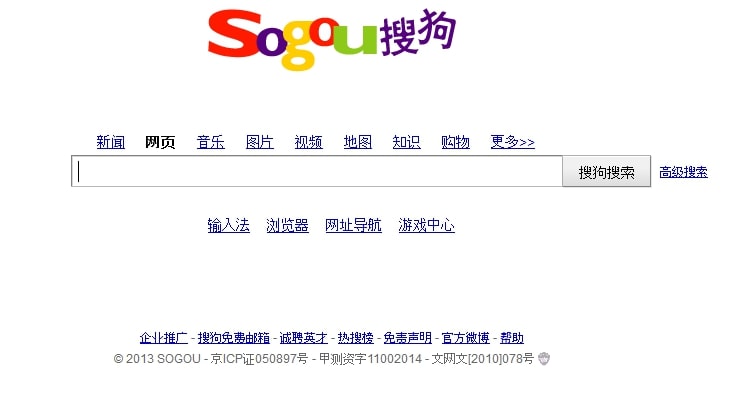7 Best Web Browsers in China | Chinese Browser You Need to Download Today!
by Tim Blue on Sep 26, 2024

The common confusion persists — Which browser works best in China? Despite the existence of so many domestic browsers, why do the Chinese prefer some international browsers? Also, it is a bit hard to imagine lives that don’t depend on Google. So another question remains — What do the Chinese use instead of Google?
Google might be banned in China, but their browser isn’t. But here are a few more options just in case to peruse through the best browsers in China.
Google Chrome

Does Google Chrome work in China? Yes!
Big surprise — Chrome holds a major chunk of the browser market of China, more than half of it actually, leaving the rest to spare for the rest of the browsers. It could be shocking for some people, knowing that Chrome is so extensively used in China despite Google being blocked in mainland China.
Well, it is possible because Chrome technically doesn't require a server connection to Google in order to work. It is more to do with the utilitarian-ness than to do with Google’s search engine itself. Anyone can find the Google Chrome browser on this link: www.google.cn/chrome. In the app, you can easily move from the default search engine to the one that works in China. For example Bing or Baidu.
All that being said, it still isn’t clear why Google is the best web browser in China. From research and experience I found that despite having all google affiliated apps banned and having to use a VPN to access them, it is still worth it.
Efficiency:
I found that the entire interface is a hundred times more user friendly and surprisingly faster than the other browsers. Take for example the other Chinese browsers, the second you leave them idle for a few minutes, they seem to be filled with popups. That does not happen with Chrome.
Concept:
When one is using Chrome, it enables you to focus on your surfing and research rather than keeping you engulfed in navigating through the browser. I have often found that the other Chinese browsers seem to be too profit driven and have advertisements sprawled across the entire browser.
Besides, in a Chinese browser, one often finds that they are met with state-run articles that are meant to put a hinge in free thinking.
Design:
Their design enables a first time user to set preferences in a way that it sets the tone for the rest of its use. You are not unfamiliar with the shortcut icons that can be set on the landing page in addition to a recommended article based on your searches.
Limitations:
While it is true that Chinese Chrome users (or any browser user) can’t use Google affiliated apps, it is also true that accessing the web through Chrome gives the users access to more websites than they’d get if they use any other browser. One such example is something as simple and necessary as GitHub. Some Chinese browsers restricted access to GitHub and the users were at the risk of losing many versions of their collaborated work on the platform.
Of course, the platform was still accessible via a VPN when connected to Chinese websites, but one could access it without a VPN and reduce the risk of loss of speed while using Chrome.
Competition:
Chrome is built on an open-source code Chromium, which we all know. But unlike regular Chromes, Chrome in China can’t be updated automatically. You’ll have to look for an update and do the needful. Because of the freely accessible Chromium, some developers like that of Microsoft Edge can alter the code and create browsers that resemble Chrome and can be freely accessed in China, thus increasing the competition. Besides, all the Chrome extensions and bookmarks can be imported to Edge!
Regardless of all of this, it is safe to say that it still persists as one of the best non-Chinese browsers in China, and even on a larger spectrum.
360 Browser

360 Browser has got an all rounded experience in store for you, pun intended. There are a lot of good things about it and a lot of things to take into consideration before you go ahead and use it.
Qihoo Technologies developed 360 Browser keeping in mind the design and engine of the Internet Explorer. That being said, the interface also resembles Chrome, so navigation through the site remains relatively simple.
Unique Features:
Granted that the 360 Browser isn’t the fastest one on the market, it does have an integrated anti-phishing tool that helps prevent any suspicious downloads that you may encounter. Due to this automatic integration, the browser will send you pop-ups that will keep you vigilant. Such a characteristic definitely put the browser on the map of the best web browsers in China.
Why I’d think twice:
While it also has an ad-blocker, I don't think it is effective. A lot of where the browser makes money from is advertising! For a minute, it might seem less cluttered, but be prepared to click on a lot of x’s and forget about seamless browsing.
I’ve also found that there has been a problem in uninstalling the browser and there have been claims about the browser exposing passwords due to a security issue in 2013. This hidden backdoor enabled the browser to be connected to an unknown server that stole information. That problem seems to have been rectified now but you can never be too careful.
Baidu

Often known as the Google of China, it lives up to its name. It is completely free, constantly updates the browser and provides speedy browsing. But is Baidu better than Google?
Features:
One of the fun things about Baidu that makes it convenient is the sidebar available at a single click. In this sidebar, you'll be able to find icons that help you take a screenshot and easily download videos.
The browser also offers a special set of tools adjacent to the address bar. In the tool bar you’ll find an easy process to ‘download Torrent’ and ‘Open Downloads Manager’ in addition to the two mentioned above.
There have been questions about whether Baidu is safe to use. In the past, Baidu underwent some issues with privacy and has made many strides to overcome any security concerns by seriously upping its safeguarding methods. They now have a built-in virus scanner that directs you away from and warns you about virus prone files and malicious sites.
It also has an adware block that helps reduce any cause for interruption and intrusions in your browsing. All this makes Baidu a worthy alternative to Google and one of the best web browsers in China. In fact, even with the plethora of inbuilt features, Baidu remains free of lags and crashes.
What I am not a fan of:
The whole browser itself is in Chinese and it can’t be translated. This can be quite a hindrance for foreigners living abroad or anyone who isn’t familiar with the website, despite the seamless browsing experience it offers.
Information wise, I wouldn't know whether to trust Baidu. This strong accusation comes from the fact that Baidu ranks the results in its search engine based on how well made the site's home page is. That isn’t exactly a great parameter to rank sites.
Sogou

It literally translates to Search Dog. After Baidu, Sogou is the most popular Chinese web browsers in the country.
Enabling Research:
In 2016, Sogou tied hands with Microsoft Bing to provide English search results to the browser. Considering the number of academicians and research scholars in China, an English search directory would enable new strides. With that in mind, the collaboration also led to the advent of Sogou Scholar Search and Sogou English Search.
Sniffing data:
This search dog truly has heightened its senses with the Sogou Cloud Pinyin. This bookmarklet enables you to enter all kinds of Chinese characters into your search bar without any extra plug-in, making your search just that much easier.
Visibility: Sogou is truly and inherently Chinese. It gives preference to those sites that have a website that is in Chinese, domain with a ‘.cn’ and also have a large number of backlinks from Chinese web pages. Therefore, if you’re looking to do a deep dive into Chinese databases, Sogou should be your go-to.
QQ Browser

QQ holds a significant chunk of the most used web browsers in China. The browser was launched by Tencent and uses an amalgamation of Trident and WebKit interface. This dual browser interface makes research easy, and makes switching tabs a lot less cumbersome. Surfing is quick and stable but it all comes at a cost.
It may seem that QQ browser has received allegations that their servers aren’t the safest. They could be prone to be breached with little to no encryption at all, hence the data being in danger.
Microsoft Edge

In recent times Microsoft Edge has had a significant increase in market share in china and is now the second most popular.
Microsoft Edge is based on the Chromium open-source project. Thanks to this platform it now includes features that are available in Chrome, it now also supports Chrome browser extensions as well.
Unlike the old Microsoft edge this new version will receive updates every six weeks as opposed to every six months along with windows updates.
Edge comes with a reader mode called Immersive reader, this will strip all extra content and leave only text for easier reading.
Edge also has a sync feature that
will allow you to import your favorites, settings and passwords using your Microsoft account.
Mozilla Firefox

The best of Firefox feature is its security, it has pop up and ad blockers by default, provides warnings for malicious websites and spam, it also uses a safe browsing database to keep users safe from virus attacks and spam.
Firefox is amazingly fast partly due to it using less cookies than browsers like Chrome, this consumes less resource memory than others as well.
Firefox is easy to use, searches can be done in the address bar and you can also get bookmarks and history in the search results, it also has an auto URL suggest feature.
Firefox also comes in more than 90 languages for a wider better user experience.
Um, hello VPN!
You can’t use Gmail, YouTube or any other Google service in China. But if you have an itch to scratch that itch, a VPN will help you. Some of the best VPNs with great deals are ExpressVPN, SurfShark, NordVPN and StrongVPN
Top Chinese Books for Beginners to Learn Chinese | Books to learn Mandarin





